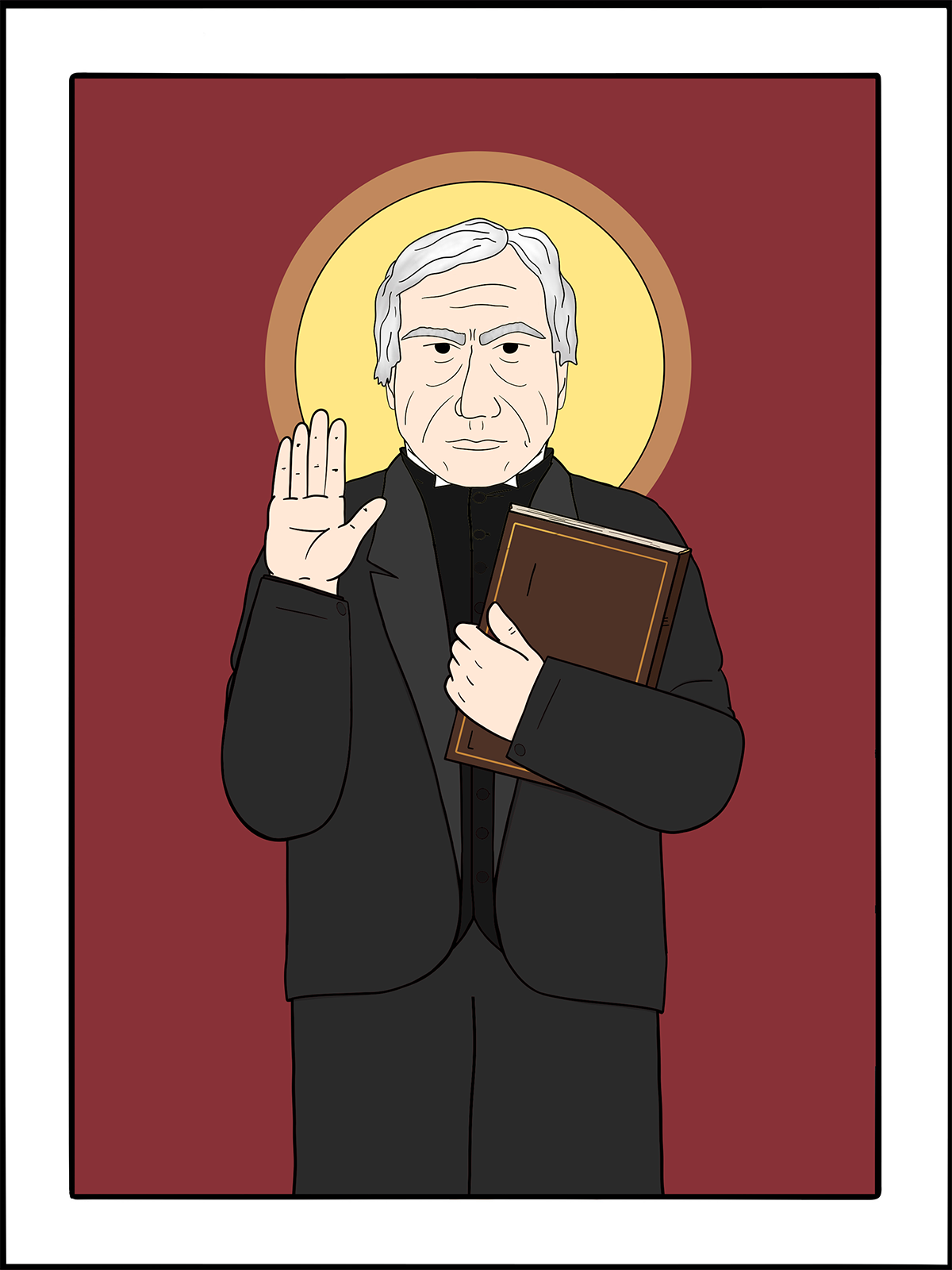
May 24
Jackson Kemper
Bishop and Missionary, 1870
art by Rev. Kirsten Kohr of Geneva, Ohio O God, who sent your son Jesus Christ to preach peace to those who are far off and to those who are near: Grant that we, like your servant Jackson Kemper, may proclaim the Gospel in our own day, with courage, vision, and perseverance; through the same Jesus Christ our Lord, who with you and the Holy Spirit lives and reigns, now and for ever. Amen.
When the General Convention of 1835 declared all the members of the Episcopal Church to be members also of the Domestic and Foreign Missionary Society, it provided at the same time for missionary bishops to serve in the wilderness and in foreign countries. Jackson Kemper was the first such bishop. Although he was assigned to Missouri and Indiana, he also laid foundations in Iowa, Wisconsin, Minnesota, Nebraska, and Kansas, and made extensive missionary tours in the South and Southwest.
Kemper was born in Pleasant Valley, New York, on December 24, 1789. He graduated from Columbia College in 1809 and was ordained as a deacon in 1811 and as a priest in 1814. He served Bishop White as his assistant at Christ Church, Philadelphia. At his urging, Bishop White made his first and only visitation in western Pennsylvania. In 1835, Kemper was ordained as a bishop, and immediately set out on his travels.
Because Episcopal clergy, mostly from well-to-do Eastern homes, found it hard to adjust to the harsh life of the frontier—scorching heat, drenching rains, and winter blizzards—Kemper established Kemper College in St. Louis, Missouri, the first of many similar attempts to train clergy and laity for specialized tasks in the church. The College failed in 1845 from the usual malady of such projects in the church—inadequate funding. Nashotah House, in Wisconsin, which he founded in 1842 with the help of James Lloyd Breck and his companions, was more successful. So was Racine College, founded in 1852. Both these institutions reflected Kemper’s devotion to beauty in ritual and worship.
Kemper pleaded for more attention to the Native Americans and encouraged the translation of services into native languages. He described a service among the Oneida which was marked by “courtesy, reverence, worship—and obedience to that Great Spirit in whose hands are the issues of life.”
From 1859 until his death, Kemper was diocesan Bishop of Wisconsin, but he is more justly honored by his unofficial title, “The Bishop of the Whole Northwest.”
Excerpted directly from “Lesser Feasts and Fasts 2022,” p. 242-243.

